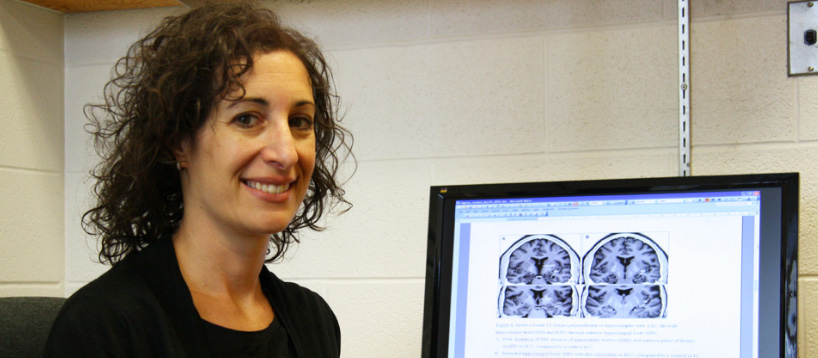York University researchers in the Faculty of Health are investigating the science behind the reasoning that may affect an individual’s health care decisions, such as whether or not to receive the COVID-19 vaccine.
By Elaine Smith
“Without insight into human behaviour, mathematical models can only go so far,” says Faculty of Health Professor Shayna Rosenbaum, York Research Chair in Cognitive Neuroscience of Memory. Given that modelling has become a mainstay during the pandemic, she and her research team are aiming to fill in some of those gaps, including the science behind the reasoning that may affect health care decisions, such as whether or not to get vaccinated.

Rosenbaum is a neuroscientist and clinical neuropsychologist who specializes in the neurocognitive basis of memory, including episodic memory – past personal experience that can enrich your life by reflecting on past joys or allowing you to dream of the future. Rosenbaum and her team are looking at whether the ability to imagine a better future affects the likelihood of delay discounting, or the ability to put off instant gratification for a better reward later.
“For most people, the longer they need to wait for a future reward, the more likely they are to choose the immediate reward,” says Rosenbaum.
Delay discounting figured prominently during the pandemic as people gave up opportunities to mingle indoors with family and friends in order to prevent transmission of the virus, anticipating that their behaviour would pave the way for safe large gatherings in the future.
Rosenbaum and her research team, including PhD students Julia Halilova and Jenkin Mok, know from previous work that decision-making is highly susceptible to disease, so people suffering from anxiety, depression, or addiction may be more immediate-focused and more likely to choose smaller, immediate rewards than larger, long-term rewards. Since the length of the pandemic has heightened feelings of anxiety and depression for many people, they may show a greater tendency for delay discounting. Rosenbaum and her colleagues received funding from the Canadian Institutes for Health Research (CIHR) to explore decision-making in a multi-national sample to see whether the inability to delay gratification might be tied to decisions about undertaking protective behaviours during the pandemic (e.g. getting vaccinated, wearing masks).
“We used a more subtle paradigm to test this hypothesis by substituting financial decisions as a proxy for other decisions,” Rosenbaum says.
Looking at a large sample from 13 industrialized countries, they found that even when controlling for mental health issues, income, education and essential worker status, delay discounting was predictive of whether or not a person was likely to be vaccinated. Those who wanted the smaller, immediate rewards were more likely to be unvaccinated.
Rosenbaum and her team have learned there are ways of changing the insistence on immediate rewards. “This isn’t simply a behavioural marker,” Rosenbaum says. “The tendency to discount delayed rewards could be corrected by giving people cues to imagine the future, something that our team showed in research involving older adults and individuals with lesions to areas of prefrontal cortex or to the hippocampus.
“If people with lesions to parts of prefrontal cortex were given cues to imagine a specific future event, such as a 40th wedding anniversary, and then asked to decide between receiving $1,000 today or $2,000 a year from now, they actually chose the delayed reward more often; they made better decisions. For those with hippocampal damage, if you provided a cue to imagine a future event, they did not benefit from the cues because they have difficulty remembering and imagining personal experiences.”
Rosenbaum sees the ability to provide cues that affect decision-making as having real public health relevance; it could help health care professionals reach the population that has been resistant to COVID-19 vaccinations up until now, but it might also be helpful in assisting older adults to make better choices as their brains change over time.
“We are looking beyond COVID-19 to consider other real-world applications for this knowledge,” she said.


